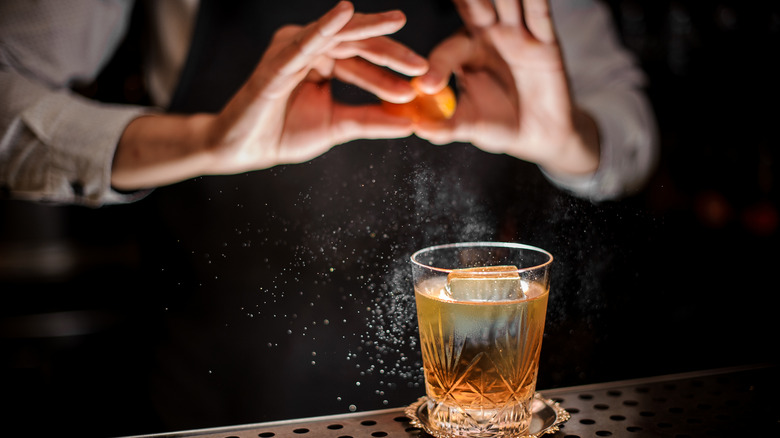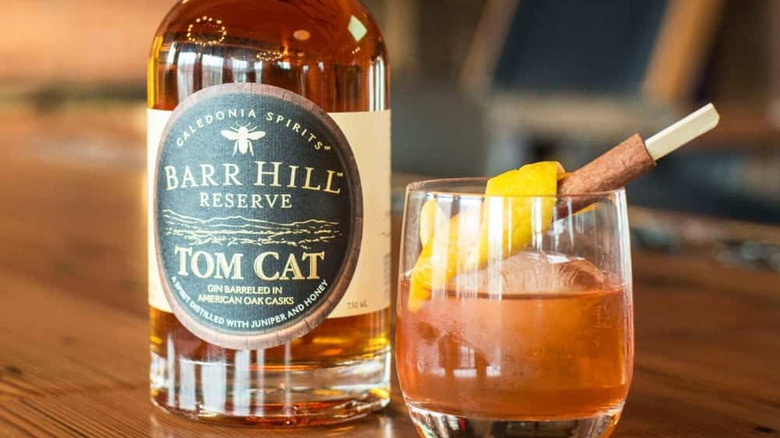The Top Tip You Need For A Perfect Gin Old Fashioned
If you go into a bar and order an Old Fashioned, you'll get a cocktail made with either bourbon or rye, according to Whisky Advocate, combined with a little sugar, bitters, and a twist of orange rind. But if you'd asked Jerry Thomas, author of the first book in English that contained cocktail recipes, to make you the drink, he'd have made it with gin, according to Thrillist. The recipe from the 1862 book read: "Crush a small lump of sugar in a whiskey glass containing a little water, add a lump of ice, two dashes of Angostura bitters, a small piece of lemon peel, one jigger Holland gin. Mix with small bar spoon. Serve."
It was in 1880, in Louisville, Kentucky, that the whiskey Old Fashioned was born, Thrillist explains, at the Pendennis Club, made by bartender James E Pepper. Hundreds of variations on the Old Fashioned can be found on craft cocktail lists, using fresh seasonal ingredients, a wide array of bitters, and even spirits like mezcal. Gin lovers who want to taste the Old Fashioned the way it was originally crafted will need to consider one important factor when building their beverage.
One type of gin best suits the Old Fashioned
The Old Fashioned is lovely in its simplicity; the spirit itself is the dominant flavor, and, as Food & Wine points out, most people — even those who love gin — don't typically drink it just over ice. The strong juniper flavors for which gin is both loved and sometimes reviled are more palatable when tempered with mixers like tonic water and lime juice. Ordinary gin — clear, bright, and perhaps a bit astringent — isn't the ideal choice if you want a satisfying Old Fashioned.
The best choice for your classic cocktail is a gin that's been barrel aged. Barrel aging mellows gin, adding depth and complexity of flavor. A barrel-aged gin, which Food & Wine explains picks up a honeyed color, along with vanilla and caramel notes from the wood, pairs like a dream with bitters, simple syrup, and the orange zest of your typical Old Fashioned. Some barrel-aged gins to look for include Vermont-made Barr Hill's Tomcat Reserve Gin, Philadelphia Distilling's Bluecoat Barrel Finished Gin, and Corsair Distillery's Nashville-produced Barreled Gin.
Once you've picked up your barrel-aged gin, you may wonder what else you can do with it. On The Sauce Again suggests experimenting with oak-aged gin in a hot toddy, Manhattan, or simply mixing with ginger ale.

